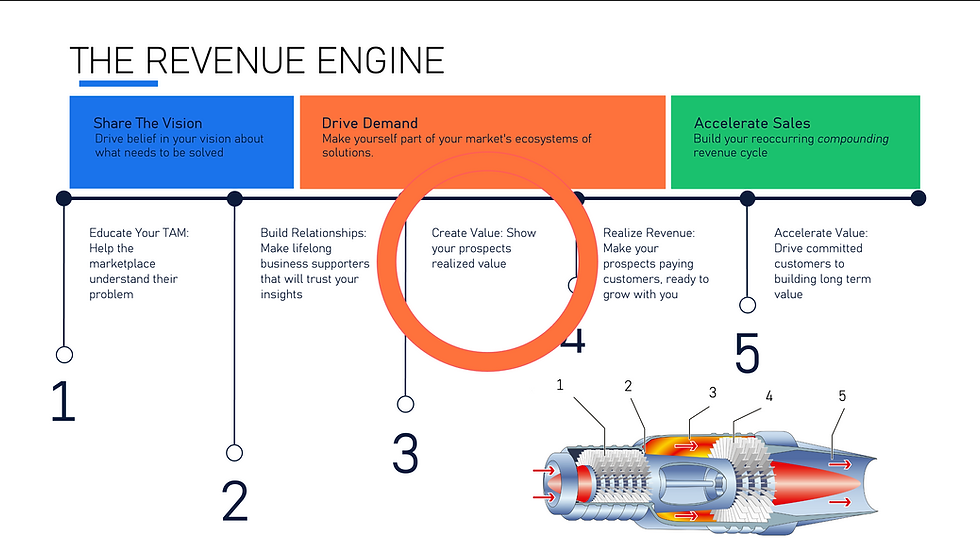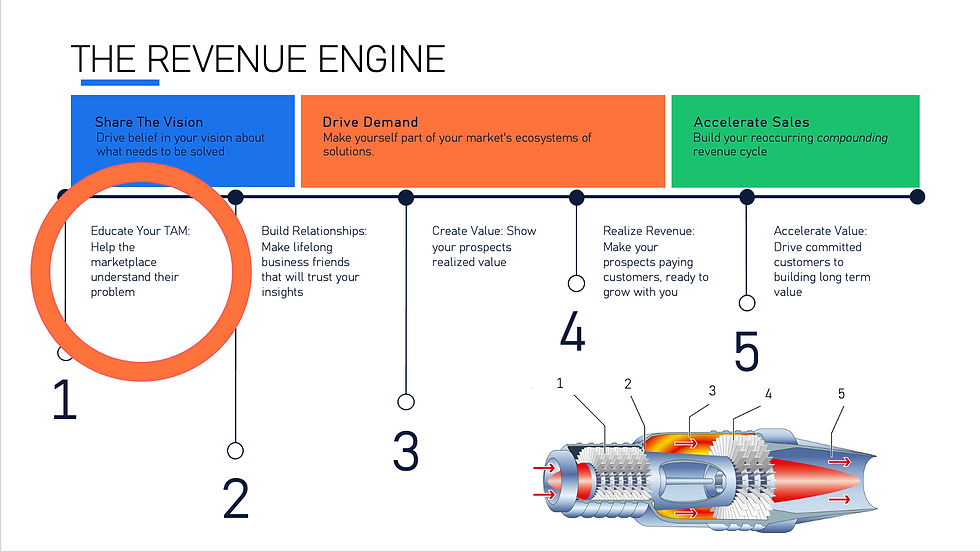Build Relationships: Make Lifelong Business Supporters That Trust Your Insights
- Jason Seals
- Jan 13
- 3 min read
You have a targeted subset of your Total Addressable Market (TAM) selected, interviewed, and they’re starting to pay attention to how you define and solve business challenges. Now what?
When it comes to B2B sales, a prospect's risk aversion cannot be ignored. When individuals or teams advocate for budgeting a new solution, they aim to solve a problem while safeguarding their credibility. In other words, your decision-maker must sell your solution to their stakeholders, and trust in their business reasoning is their most valuable currency. Therefore, prospects need to trust you before putting their reputation on the line for your product.
While proof of concept, ROI stories, and impressive features are essential to selling, trust is what ultimately gets deals off the fence. If those ROI stories are to resonate, buyers must trust the messenger. Building that trust requires a relationship.
Humans are wired for reciprocal relationships. The give-and-take dynamic of reciprocity enables us to specialize and build complex societies. It’s basic to human nature, which makes reciprocity critical in joint projects—and in B2B sales.

How to Build Relationships (at Scale).
Reciprocity is the key. You provide something of value, and they return the favor.
For instance, if you’ve published a valuable insight or data point that can help prospective buyers solve a problem, it’s reasonable to request something in return—such as their name, title, email, or phone number. When prospects share this information in exchange for vital problem-solving insights, you establish reciprocity and plant the seeds of a relationship.
How do you nurture this budding relationship? By asking for an hour of their time? Not quite. Just because you’ve proven your value doesn’t mean a prospect is ready to invest their most precious resource: time.
Instead, start small. They might be willing to answer a quick question or download a more detailed resource. By engaging with their immediate challenges and offering tailored solutions, you’re helping them solve pressing problems while gathering valuable insights to advance the sale. Each deliverable moves them closer to your solution, creating a win-win dynamic. I call this a “value exchange journey”.
Scaling Trust-Building
Extrapolate this process, and you have a framework for building trust and driving sales. But what about scale? If every salesperson builds relationships manually, your company risks bankruptcy before closing enough deals to justify the investment.
The good news is that the tools to scale trust-building already exist. The key is ensuring you’re fostering reciprocal relationships, not just “building awareness.” Humans tend to anthropomorphize anything that communicates, so prospects can form relationships with an email persona, an AI bot, or even your corporate entity—provided there’s an ongoing exchange of value.
Scaled Value Exchange Journeys
Trust-building can be scaled effectively using off-the-shelf CRM and marketing platforms. These systems leverage AI and automation to guide prospects through customized value exchange journeys.
As trust grows, it’s time to initiate more targeted sales efforts or calls to action that lead to product adoption. But wait—product adoption isn’t a sale. Is this backwards? Not in today’s freemium-driven world. Product adoption serves as the gateway to paid customer conversions, forming the next stage of successful revenue engines.
Conclusion
Building meaningful, trust-based relationships is the cornerstone of successful B2B sales. Trust takes time, consistency, and a deep understanding of your prospects’ needs. By sharing valuable insights and solving problems collaboratively, you create the reciprocity necessary to establish trust. These interactions not only showcase your expertise but also encourage decision-makers to champion your solution within their organizations.
Scaling this approach doesn’t mean losing the personal touch. With modern CRM and marketing tools, businesses can deliver tailored value exchange journeys at scale. By combining automation with freemium strategies, you turn trust into action, action into adoption, and adoption into sales. The key to lifelong business supporters lies in nurturing mutually beneficial relationships that evolve over time, ensuring shared success.




Comments